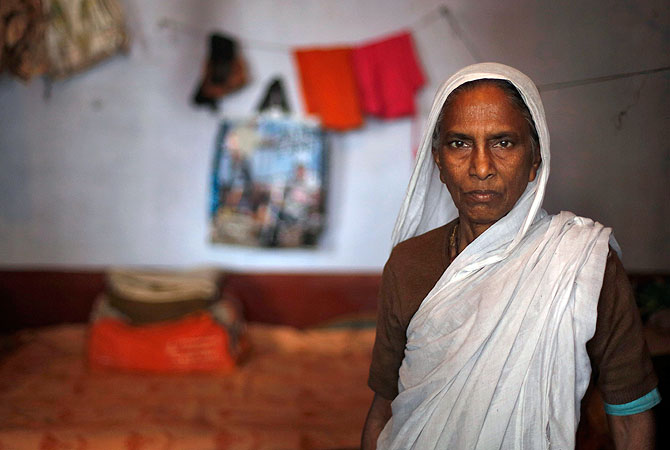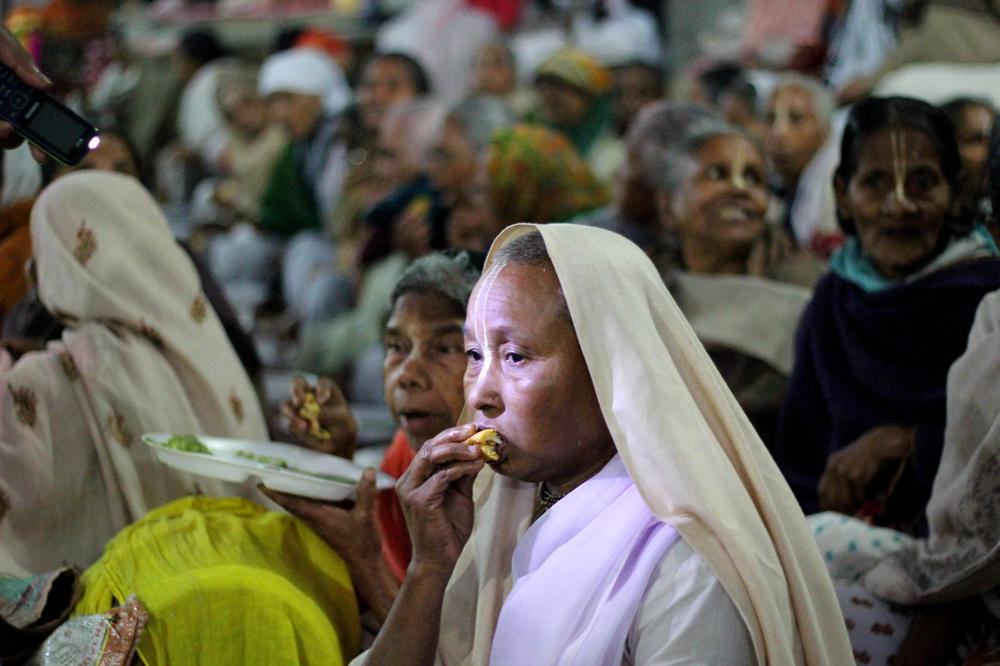Poverty
Across a wide spectrum of countries, religions and ethnic groups, a woman is left destitute when her husband dies. Poverty is often made worse by little or no access to credit or other economic resources, and by illiteracy or lack of education. Without education and training, widows cannot support themselves or their families.

Many widows in traditional societies have no rights, or very limited rights, to inheritance or land ownership under customary and religious law. Without inheritance rights, including a lack of rights to the property of their birth family, widows find themselves financially insecure and totally dependent on the charity of their husbands’ relatives.
In India, where widowhood constitutes a low status social institution as well as a personal condition, thousands of widows are disowned by relatives and made homeless, forcing many women to seek informal work as domestic labourers or turn to begging or prostitution.
Widows in developed countries may also face particular difficulties, ranging from loss of insurance coverage to difficulties in accessing credit to becoming solely responsible for childcare. In some cases, widows can become liable for the debts of a deceased spouse.
Violence against widows
Violence against women is one of the most widespread violations of human rights, affecting women of all backgrounds, ages, cultures and countries. Widows are no exception and may in fact be at particularly high risk of violence.
In many countries, but particularly across Africa and Asia, widows find themselves the victims of physical and mental violence – including sexual abuse – related to inheritance, land and property disputes. With no rights to ownership of her husband’s property, a widow may be subject to abuse and cast out of her home altogether. In Africa, widow abuse cuts across ethnic, class and income boundaries, rendering widows among the most vulnerable and destitute women in the region.

Widows are coerced into participating in harmful, degrading and even life-threatening traditional practices as part of burial and mourning rites. In a number of countries, for example, widows are forced to drink the water that their husbands’ corpses have been washed in. Mourning rites may also involve sexual relations with male relatives, shaving of the hair and scarification.
Impact on health
Poor nutrition, inadequate shelter and vulnerability to violence, combined with a lack of access to health care, can impact the physical and mental well-being of widows. The sexual and reproductive health needs of widows may go unaddressed, including the fact that widows are often the victims of rape.
Widows are particularly vulnerable in the context of HIV and AIDS. Women may be kept unaware of the cause of their husband’s AIDS-related death and made to undergo ritual cleansing through sex with male relatives regardless of HIV status. The economic insecurity stemming from widowhood also drives some women and girls to sex work.
Widows and conflict-related situations
Vast numbers of women are widowed due to armed conflict. In some parts of eastern Democratic Republic of the Congo, for instance, it is reported that around 50 per cent of women are widows, while there are an estimated three million widows in Iraq and over 70,000 in Kabul, Afghanistan.

